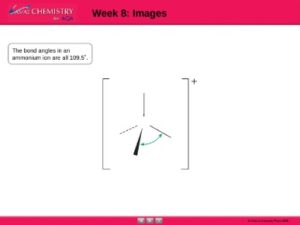In capital budgeting analysis, managerial accountants calculate the net present value (NPV) and the internal rate of return (IRR) to help managers to decide on new capital budgeting decisions. Variance analysis is a systematic approach to the comparison of the actual and budgeted costs of the raw materials and labour used during a production period. The data collected encompasses all fields of accounting that informs the management of business operations relating to the costs of products or services purchased by the company. Management accounting is the collection, analysis, interpretation, and communication of financial information to managers within an organization.
Because it is manager oriented, any study of managerial accounting must be preceded by some understanding of what managers do, the information managers need, and the general business environment. The analysis of the production lines of a business identifies principal bottlenecks, the inefficiencies created by these bottlenecks, and their impact on the company’s ability to generate revenues and profits. You can set up most of these analyses fairly easily with business accounting software, which often presets the accounting formulas you’ll need. Most companies don’t need them all – especially businesses that are particularly small, flat or narrow in scope – but all small businesses can benefit from at least some of the functions named above. A master’s in accounting with a concentration in Management Accounting prepares you to pursue advanced positions within many kinds of organizations.
Helping Understand Performance Variances
Managerial accounting differs from financial accounting because the intended purpose of managerial accounting is to assist users internal to the company in making well-informed business decisions. Management accountants improve an organization’s efficiency and profits by providing various coordination tools such as budgeting, financial reporting, financial analysis and interpretation, and so on. These tools aid management by comparing cost and financial records, preparing financial budgets and establishing standard costs, and analyzing cost deviations to enable management by exception. Management accounting refers to accounting information developed for managers within an organization. This is the phase of accounting concerned with providing information to managers for use in planning and controlling operations and in decision making. Managerial accountants need to analyze various events and operational metrics in order to translate data into useful information that can be leveraged by the company’s management in their decision-making process.

An advanced degree builds your expertise, strengthens and expands your leadership skills and lets you realize your personal and professional goals. Unlike financial accountants, management accountants are focused on making future projections for a business or organization. The major objective is to provide timely, useful information for use in making business decisions, including plans and forecasts. Other objectives include measuring organizational performance over time so that managers can identify problems that are occurring in one or more business units. Managerial accounting is important for drafting accurate and complete financial statements for internal use and crafting a company’s long-term strategy. Without good managerial accounting, corporate leadership can struggle to make appropriate choices or misunderstand the firm’s true financial picture.
Keep up with technology
The treasury department will also assign funding credit to business units who bring in deposits (resources) to the bank. Although the funds transfer pricing process is primarily applicable to the loans and deposits of the various banking units, this proactive is applied to all assets and liabilities of the business segment. Managerial accountants perform cash flow analysis in order to determine the cash impact of business decisions. Although accrual accounting provides a more accurate picture of a company’s true financial position, it also makes it harder to see the true cash impact of a single financial transaction. A managerial accountant may implement working capital management strategies in order to optimize cash flow and ensure the company has enough liquid assets to cover short-term obligations.

An accounts receivable aging report categorizes AR invoices by the length of time they have been outstanding. For example, an AR aging report may list all outstanding receivables less than 30 days, 30 to 60 days, 60 to 90 days, and 90+ days.
Manager/Director – strategic planning
We would like to ask you for a moment of your time to fill in a short questionnaire, at the end of your visit. If you decide to participate, a new browser tab will open so you can complete the survey after you have completed your visit to this website. SNHU is a nonprofit, accredited university with a mission to make high-quality education more accessible and affordable for everyone. Find out what courses you’ll take, skills you’ll learn and how to request information about the program. Having a graduate degree can also translate into a salary bump or give you leverage in the salary negotiating process by demonstrating your expert knowledge.
Our work has been directly cited by organizations including Entrepreneur, Business Insider, Investopedia, Forbes, CNBC, and many others. The origins of GPK are credited to Hans Georg Plaut, an automotive engineer, and Wolfgang Kilger, an academic, working towards the mutual goal of identifying and delivering a sustained methodology designed to correct and enhance cost accounting information. GPK is published in cost accounting textbooks, notably Flexible Plankostenrechnung und Deckungsbeitragsrechnung[19] and taught at German-speaking universities. Check policies and guidelines; access assisting resources; register for your exams; renew your membership; request support; showcase your qualification on LinkedIn, Facebook, and Twitter. Powered by the Elsevier Fingerprint Engine™, Elsevier JournalFinder uses smart search technology and field-of-research-specific vocabularies to match your article to Elsevier journals. https://kelleysbookkeeping.com/how-the-face-value-of-a-bond-differs-from-its/, she said, is a specialized type of accounting — a dialect within the language of business.
Management accounting is a field of accounting that analyzes and provides cost information to the internal management for the purposes of planning, controlling and decision making. Financial accounting is the practice of tracking a company’s financial transactions and building statements that summarize that company’s financial activities and circumstances. Most small businesses use this method to track their transactions and organize records into consolidated statements summarizing their financial circumstances. Lastly, decisions that you or your managers make after reviewing accounting reports need to be based on not only executive insight, but also your business’s risk tolerance, industry norms, where the company is in the growth cycle, and your specific growth objectives. According to the BLS, the median salary for all accountants and auditors was $77,250 in 2021.





 Декабрь 30th, 2021
Декабрь 30th, 2021  admin
admin  Опубликовано в рубрике
Опубликовано в рубрике  cuatro. Conclusion: End using your real matter for Tinder membership
cuatro. Conclusion: End using your real matter for Tinder membership Edarling VS Amoureux ? Lequel site en compagnie de bagarre accorder ?
Edarling VS Amoureux ? Lequel site en compagnie de bagarre accorder ?